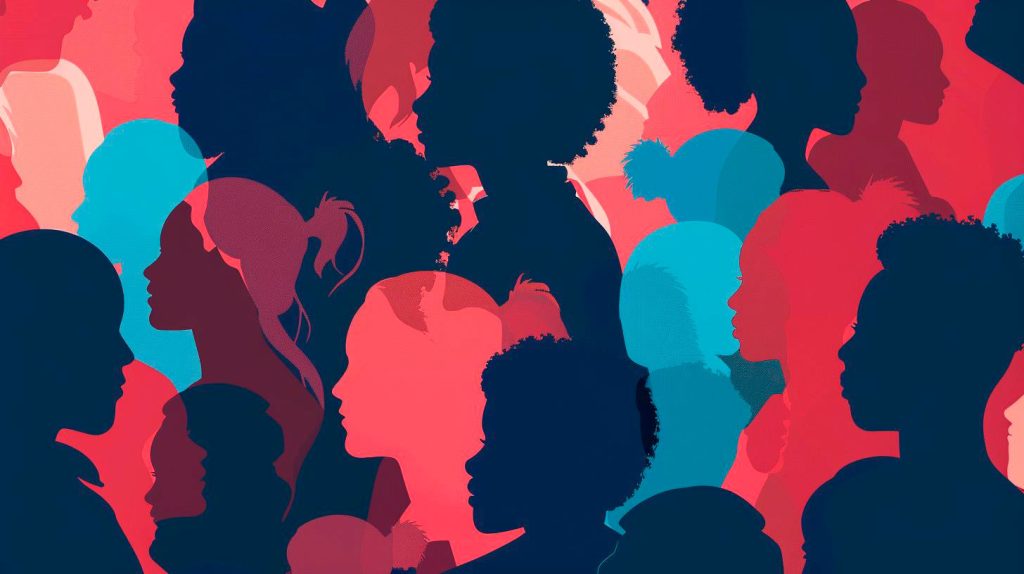
Steps to Take to Protect Your Identity on Social Media Platforms
Here are some key steps you can take to enhance your security and privacy on social media:
1. Review Privacy Settings Regularly
One of the fundamental steps to protect your identity on social media platforms is to review and adjust your privacy settings regularly. Platforms like Facebook, Instagram, and Twitter often update their privacy policies, making it essential to stay informed to ensure your personal information is not being shared with third parties without your consent.
2. Be Mindful of What You Post
Think twice before posting personal information such as your home address, phone number, or financial details on social media. Cybercriminals can use this information to steal your identity or commit fraud. It is best to limit the amount of personal information you share online to reduce the risk of identity theft.
3. Use Strong, Unique Passwords
It may seem simple, but using strong and unique passwords for each of your social media accounts can significantly enhance your online security. Avoid using easily guessable passwords like “123456” or “password.” Instead, opt for a combination of letters, numbers, and special characters to create a secure password.
4. Enable Two-Factor Authentication
Two-factor authentication adds an extra layer of security to your social media accounts by requiring a second form of verification, such as a code sent to your mobile device, in addition to your password. This additional step can prevent unauthorized access to your accounts, even if your password is compromised.
5. Beware of Phishing Scams
Phishing scams are prevalent on social media platforms, with cybercriminals impersonating legitimate organizations to trick users into revealing sensitive information. Be cautious of unsolicited messages or emails asking for personal details and always verify the authenticity of the sender before responding.
6. Regularly Monitor Your Accounts
Monitoring your social media accounts regularly can help you identify any suspicious activity or unauthorized access promptly. Keep an eye out for unfamiliar login attempts, changes to your profile, or posts you did not make. Reporting any suspicious activity to the platform can help protect your identity and prevent further security breaches.
7. Educate Yourself on Online Security Best Practices
Staying informed about the latest online security best practices and trends can empower you to make informed decisions when it comes to protecting your identity on social media. Consider following reputable cybersecurity blogs or attending workshops to enhance your knowledge and skills in online security.
Protecting your identity on social media platforms is essential in today’s digital age. By following these steps and remaining vigilant online, you can safeguard your personal information and reduce the risk of falling victim to identity theft or online fraud. Remember, taking proactive measures to enhance your online security can save you from potential headaches and financial losses in the long run.
Understanding the Risks of Identity Theft on Social Networking Sites
As a leading provider of lawyer services, we understand the importance of protecting your personal information online and want to ensure that you are aware of the risks associated with using social networking sites.
The Growing Threat of Identity Theft
Identity theft is a serious and growing threat in today’s digital age. According to the Federal Trade Commission, there were over 1.4 million reports of identity theft in 2020, resulting in a total loss of over $3.3 billion. Social networking sites are a prime target for identity thieves, as they provide a wealth of personal information that can be used to steal your identity.
- One of the most common ways that identity thieves target social networking sites is through phishing scams. These scams typically involve a fake website or email that looks like a legitimate social networking site, tricking users into providing their login credentials.
- Another common tactic used by identity thieves is creating fake profiles on social networking sites to gather personal information about unsuspecting users. This information can then be used to commit identity theft or other fraudulent activities.
Protecting Your Personal Information
It is important to take steps to protect your personal information when using social networking sites to reduce the risk of identity theft. Here are some tips to help safeguard your personal information online:
- Enable privacy settings on your social networking accounts to control who can see your information and posts.
- Avoid sharing sensitive personal information, such as your address, phone number, or social security number, on social networking sites.
- Be cautious of unsolicited friend requests or messages from unknown individuals, as they could be attempting to gather your personal information.
- Regularly review your social networking accounts for any suspicious activity, such as unrecognized logins or posts.
- Use strong, unique passwords for each of your social networking accounts and consider enabling two-factor authentication for added security.
The Legal Implications of Identity Theft
If you become a victim of identity theft on a social networking site, it is important to take immediate action to protect your personal information and mitigate any potential damages. Our team of experienced lawyers can help you navigate the legal process and seek justice for any losses incurred as a result of identity theft.
Identity theft can have serious consequences, including financial losses, damage to your credit score, and emotional distress. By being aware of the risks and taking proactive steps to protect your personal information online, you can reduce the likelihood of falling victim to identity theft on social networking sites.
Don’t let identity theft on social networking sites compromise your personal information and financial security. Take proactive steps to protect yourself online and reach out to our team of knowledgeable lawyers for the legal assistance you need.
Holding Social Networking Sites Accountable for Identity Theft Incidents
Identity theft is a serious crime that occurs when someone steals your personal information and uses it without your permission. This can lead to financial loss, damage to your credit score, and even legal trouble. Unfortunately, social networking sites have often been targeted by cybercriminals looking to steal personal information from unsuspecting users.
The Scope of the Problem
According to a recent study, over 14 million Americans fell victim to identity theft in 2019, resulting in over $16 billion in financial losses. Social networking sites were found to be a common target for cybercriminals, with hackers using deceptive tactics such as phishing emails and fake profiles to obtain personal information.
One of the main issues with social networking sites is the lack of adequate security measures in place to protect users’ personal information. Many platforms collect a vast amount of data from their users, including names, addresses, phone numbers, and even credit card information. This data can easily be exploited by cybercriminals if the site’s security measures are not up to par.
The Legal Implications
While social networking sites often have terms of service agreements that users must agree to when signing up, these agreements may not always fully protect users from identity theft. In some cases, social media companies have been found to be negligent in safeguarding users’ personal information, leading to legal action being taken against them.
One example of this is the Facebook data breach incident in 2018, where the personal information of over 50 million users was compromised. The breach resulted in a $5 billion fine for Facebook and raised questions about the company’s responsibility in protecting user data.
Accountability and Responsibility
It is essential for social networking sites to take accountability for the security of their platforms and the protection of users’ personal information. Companies must invest in robust security measures such as encryption, two-factor authentication, and regular security audits to prevent data breaches and identity theft incidents.
Users should also take proactive steps to protect their personal information on social media, such as regularly updating their privacy settings, being cautious of sharing sensitive information, and reporting any suspicious activity to the platform.
As the prevalence of identity theft continues to rise, it is crucial for social networking sites to prioritize the security and privacy of their users. By implementing stringent security measures and holding themselves accountable for any data breaches, companies can help prevent identity theft incidents and protect their users from financial and legal ramifications.
Ultimately, by working together, both social networking sites and users can create a safer online environment and reduce the risk of identity theft in the digital age.













Hey, do y’all think that the government should be doing more to protect us from identity theft on social media? Like, shouldn’t they be holding these websites accountable for our personal info being stolen?
I’ve read about people losing thousands of dollars due to identity theft on social media. What are the chances of recovering any stolen funds through legal channels? Is there any hope for justice?
Bro, I heard that some sites have policies in place to protect your identity. But like, how effective are those policies really? Can we hold these platforms accountable if our info gets jacked?
Yo, can y’all believe how easy it is for someone to steal your identity on social media?! Like, I can’t even trust my own profile anymore. What legal protections are there for us against these scammers?
Man, I can’t believe how vulnerable we are on social media. Are there any federal laws in place to protect us from identity theft on these platforms? And can we go after the thieves legally?
I’ve heard horror stories of people getting their identities stolen on social media and it’s freaking me out! Are there any legal resources for victims of identity theft on these platforms? Can we sue for damages?
I’m so paranoid now about sharing anything online after hearing about identity theft on social media. What legal remedies are available for victims of this crime? Can we take legal action against the culprits?
I think it’s important for everyone to educate themselves on the risks of identity theft on social media. What legal actions can individuals take to prevent their information from being stolen on these sites?
OMG, I didn’t even know that identity theft on social media was such a big problem! Are there any laws specifically targeting this issue? And like, who would be responsible if my identity gets stolen on a social networking site?
You know, it’s crazy how much of our personal information is out there on social media for anyone to grab. What steps can we take to protect ourselves legally from identity theft on these sites?